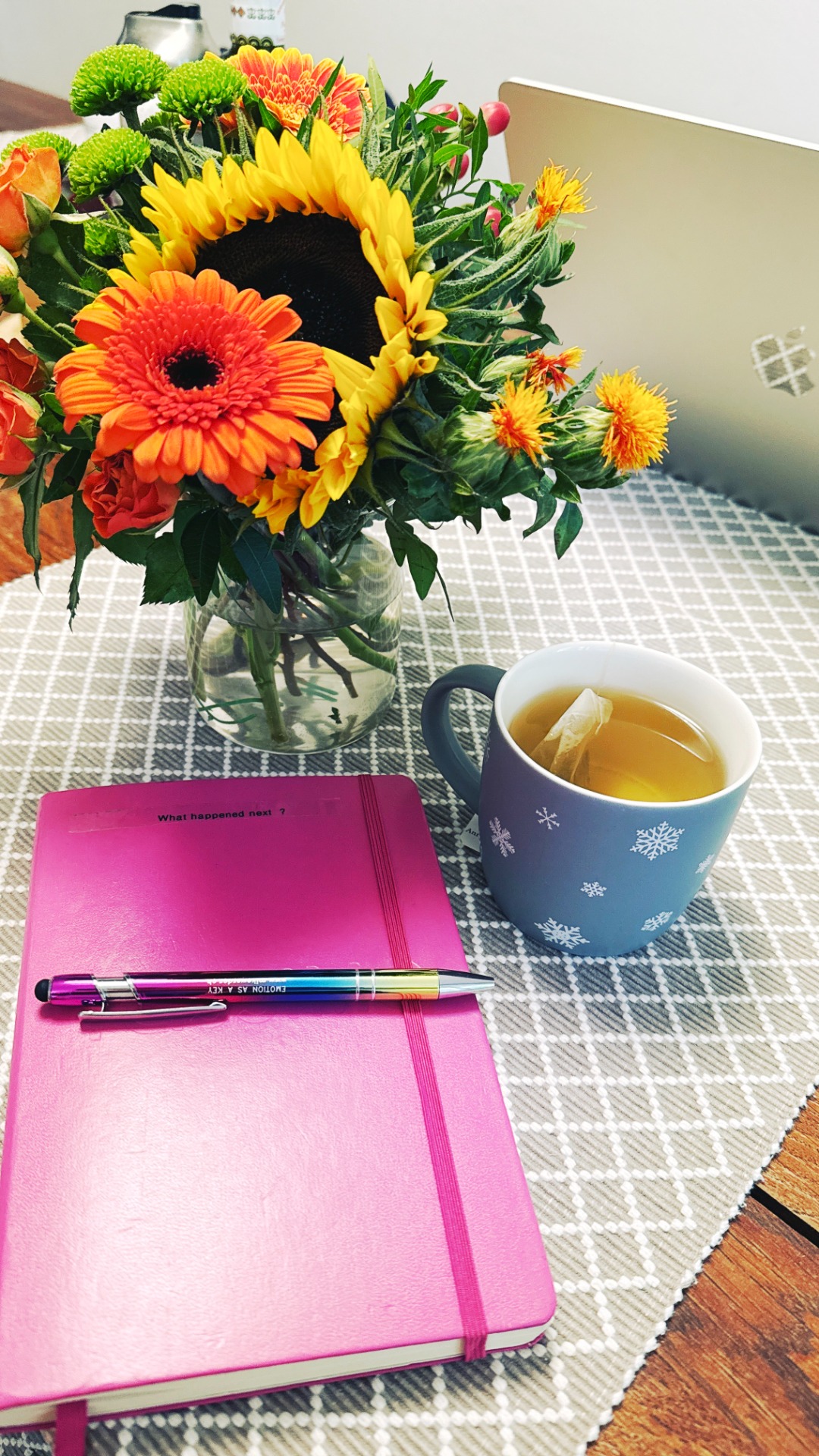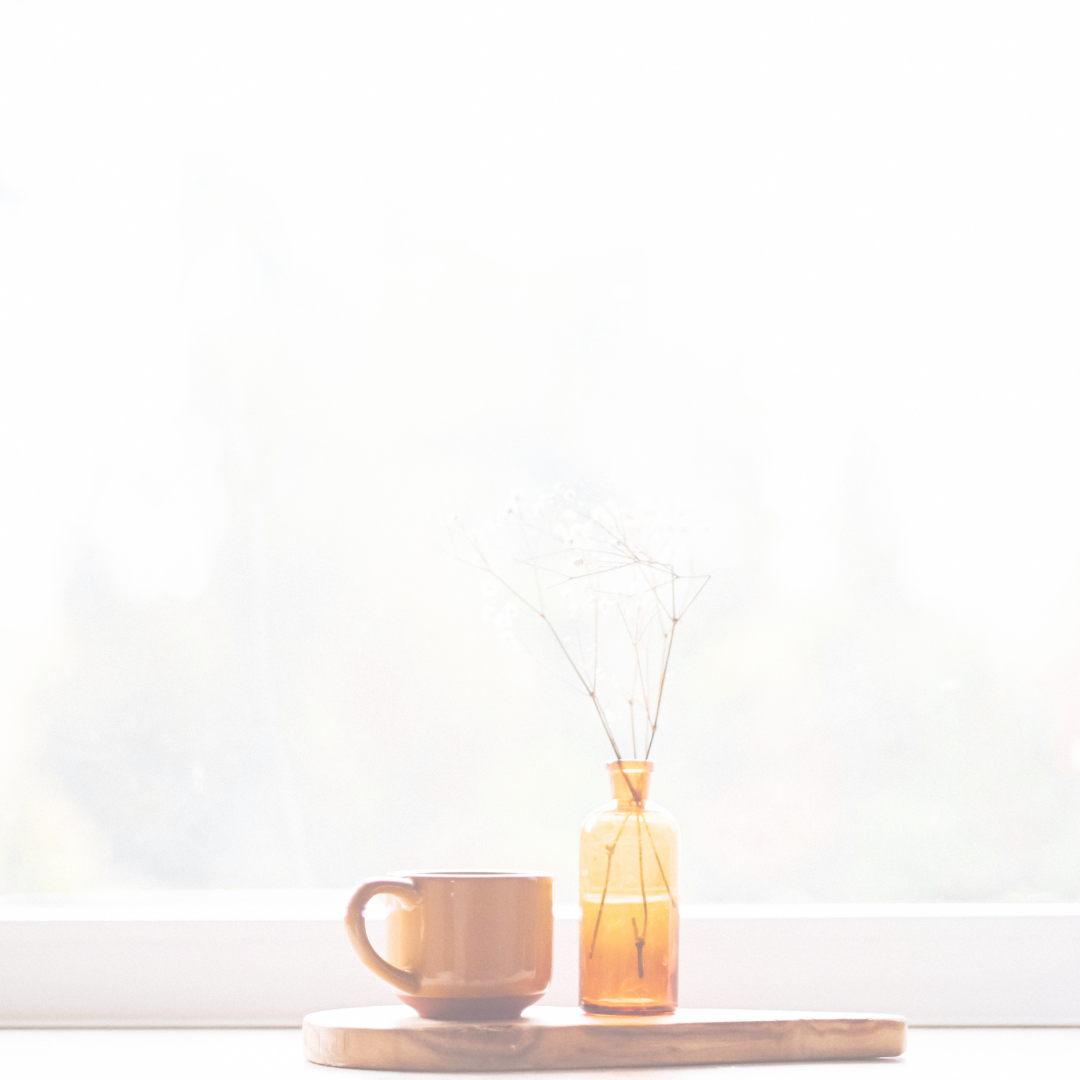Small Rituals, Big Change: The Quiet Power of Consistency
"Rituals aren't about doing more. They're about doing what matters — often enough to change you."
It's easy to get caught up in the idea that change has to be dramatic.
We picture grand gestures, all-or-nothing plans, and the sudden burst of motivation that will finally make everything click.
But here's what I've seen — in my own life and with the people I work with — the real transformation doesn't happen in the big, showy moments. It happens in the quiet, repeated choices you make when no one's watching.
⸻
Why Small Rituals Matter
Small rituals are more than habits. They're moments of intention you choose on purpose, day after day.
Psychologically, they work because they anchor you. The brain loves familiarity — when you have a ritual, you remove decision fatigue. You don't have to wonder if you'll do it, you just do it. Over time, that shapes your identity:
"I'm someone who writes in my journal every morning."
"I'm someone who takes five deep breaths before a meeting."
Small doesn't mean easy. There's often resistance at the start. Your mind will tell you it's too simple to make a difference. But that's the beauty — these moments are so manageable that they can become part of your life.
⸻
It's All About the "Why"
Simon Sinek's Start with Why has been pivotal in shaping my habits and helping me understand the reasons behind my actions. It's the same approach we use with our children at home — asking, "Why do you want those particular shoes?" to encourage thoughtful choices.
When I decided to take my health seriously and make significant changes to my daily routine, I needed a "why" that was reasonable, realistic, and relatable. For me, it was this: to live longer and healthier so I can enjoy more years with my sons and grow old with my husband with energy and vitality.
That "why" became my compass. It made saying yes to daily walks and no to unhealthy habits easier, because I wasn't just making choices — I was protecting what mattered most to me.
If you're thinking about starting your own ritual, begin with your "why." Ask yourself:
• What do I want more of in my life?
• Who am I doing this for — and does that include me?
• How will my life feel different once I start?
Your "why" doesn't have to be dramatic. It just has to be yours.
⸻
From Knowing to Doing
Once you know why you want change, the next step is making it happen.
That's where my work lives — helping you bridge the gap between intention and action.
I combine practical, psychology-based coaching with intuitive energy work so the changes you make aren't just inspiring in the moment, but sustainable in your everyday life. Because it's one thing to feel better after a session. It's another to have tools you keep using long after the conversation ends.
One client started with a single evening ritual: putting her phone away 30 minutes before bed and making a cup of herbal tea. Over time, that one shift helped her sleep better, wake earlier, and find the space for a short morning meditation. That's the compounding effect of consistency.
⸻
The Role of Discipline and Spontaneity
Discipline gets a bad reputation, but it's simply the act of showing up for yourself even when you don't feel like it. It's what keeps your rituals alive during the weeks when you're busy, tired, or distracted.
But discipline without flexibility becomes brittle. That's where spontaneity comes in. Some days, your ritual might be a full yoga practice. Other days, it's just stretching while the kettle boils. The point is to keep the spirit of the ritual, even if the form changes.

Designing Your Own Rituals
If you're just starting, keep it simple. The goal isn't to change everything at once, but to build something small and repeatable that works with your life. Choose one or two actions you can realistically commit to and anchor them to something you already do:
• After I brush my teeth, I'll write one sentence in my gratitude journal.
Why: Regular gratitude practice trains your brain to scan for positives instead of negatives. Over time, this repeated focus strengthens the neural pathways linked to positive emotion, emotional regulation, and problem-solving. The result? You become better at noticing what's working in your life — and your mind has an easier time returning to a calm, balanced state after stress.
• After my morning coffee, I'll open the window and take three slow breaths — or give my reflection a high five.
Why: Giving yourself a high five in the mirror can trigger a small dopamine release — the same feel-good chemical linked to celebration and reward. Pairing the physical gesture with encouraging thoughts activates associative memory networks, helping your brain link self-recognition with positive emotion. Over time, this can help counteract self-criticism and strengthen self-trust.
Make sure your rituals reflect your values, not just what's trending online. A ritual is a personal agreement between you and your future self — one you keep because it matters to you.
The Ripple Effect
The magic of small rituals is that they grow with you. What starts as two minutes of journaling can turn into deeper self-reflection. A daily walk can spark creativity that feeds into your work. Without pressure, these practices expand and ripple into other areas of your life.
You don't have to force the change. You just have to keep showing up.
Your Turn
Think of one small ritual you could start this week — something so simple it almost feels too easy. That's where the magic hides.
And if you'd like support creating changes that actually stick, my coaching and Reiki sessions are designed to bring together structure and soul — so your rituals aren't just something you try, but something you live.
✨ What's the one small thing you'll start today?

